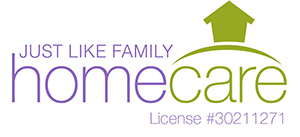Just Like Family Home Care is a provider of multiple services for those needing assistance in:
- Home health care matters, where staff are able to provide nursing and health care tasks, including reminding the client to take their medication.
- Home care services, when a client needs assistance in daily activities and personal care including bathing, dressing, food preparation or eating.
- Daily activities and personal care, when a client needs a companion/assistant to help with daily living needs like cooking, but especially with staying engaged and active.
With all of these services, Just Like Family is very cognizant of the need to match caregivers with clients in a way that both feel comfortable, and that the client’s needs are met. As we do this ‘matchmaking,’ especially for longer-term assignments, we consider many issues to make the relationship mutually beneficial.
According to Home Care Pulse, an organization that provides research and quality information to agencies reported recently on the keys to making a good match. Some of those keys are more obvious:
- Matching the client’s medical needs to the caregiver’s qualifications.
- Matching the client’s physical needs to the caregiver’s physical ability.
- Matching the client’s home environment to the caregiver’s home, to include any habits (smoking) or health concerns (allergies.)
Other issues to address in making the match include:
- Gender, if either client or caregiver is more comfortable with one or the other.
- Language, if communication could be difficult due to a language barrier.
The last issue Home Care Pulse encourages review of is personality. Making a personality match can sometimes be the hardest match-making component, reminding us to consider the personality of both the client and caregiver. We ask questions that help us understand, for example,
- Would the extroverted client prefer an extroverted caregiver, or would a more introverted caregiver allow the client to express more about their situation?
- Would an introverted client prefer another introvert or an extrovert who brings extra energy to the conversations?
- Would very energetic caregiver make the client feel overwhelmed, or would a subdued caregiver make the client feel responsible for all interactions?
- Does the client need emotional needs filled, and if so in what way, and what type of caregiver does the best with those needs?
- Does the client need someone with extra high patience and compassion?
An interesting way to look at personality is the Myers-Briggs personality tool. Through that tool, we know that there is a “type” entitled “the Caregiver.” This personality type is “conscientious, warm-hearted, and cooperative.” They also search for solutions, and carry out tasks on time and accurately. Not every caregiver we employ fits this type, but most of them mirror most of the attributes. As a provider of care, Just Like Home continues to research this component, as well as all personality attributes, so we can make the best matches possible.
Disclaimer: The blog entry above has been created utilizing different online sources. The blog entry has not been verified by a doctor. Please note that conducting the above-mentioned activities is at the individual’s own risk and responsibility. Please always consult a doctor before exercising or doing any physical activity, especially to avoid injuries or harm due to unknown preconditions. Just Like Family is not responsible for any injuries while conducting the above activities.

